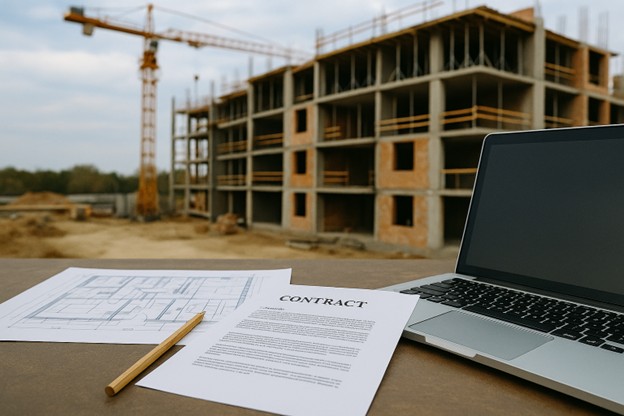Construction projects are often complex, involving many moving parts, large investments, and multiple parties with competing interests. To manage these risks, it is critical to have a well-drafted contract that clearly defines each party’s responsibilities and sets expectations from the start. One of the widely used forms in the construction industry are contracts developed by the American Institute of Architects (AIA).
The Advantages of Using AIA Contracts
AIA contracts have been developed and refined over decades by industry experts. They are designed to address the most common issues that arise in construction projects, providing a predictable and balanced framework for both owners and contractors. Because these contracts are so widely used, they provide confidence to all parties that help projects run smoothly and reduce the risk of disputes.
One of the key benefits of using AIA contracts is that they set out a clear, structured process for handling unexpected developments, such as changes in the scope of work, payment disputes, or delays. The procedures for addressing claims, changes, and even project termination are spelled out in advance, giving all parties a roadmap to follow if problems occur. This can save significant time and cost compared to negotiating solutions on the fly when tensions are high.
Additionally, because courts and arbitrators are familiar with AIA contract language, there is often less uncertainty about how disputes will be interpreted if litigation or arbitration becomes necessary. This familiarity can make dispute resolution more predictable and efficient.
Why You Should Work with an Experienced Attorney
Although AIA contracts offer a strong starting point, they are not “one-size-fits-all.” Every construction project is different, and it is important to tailor the contract terms to match the specific needs of the project, the owner, and the contractor. Without careful review and customization, parties may find themselves locked into unfavorable terms or exposed to risks that could have been avoided.
An attorney who has experience both negotiating and litigating construction contracts can add tremendous value. A knowledgeable attorney can help identify areas where modifications are needed to protect your interests, negotiate terms that are fair and reasonable, and ensure that the contract reflects the realities of the particular project. If a dispute does arise, having an attorney who understands how construction contracts are interpreted in court or arbitration can make a significant difference in the outcome.
Conclusion
Using AIA contracts is a smart starting point for most construction projects. They offer a tested and balanced framework that anticipates many of the issues that commonly arise. However, to get the most protection out of these agreements, it is critical to work with an experienced attorney who can customize the contract and guide you through the process from start to finish. Whether you are an owner or a contractor, investing in experienced legal counsel at the outset can help avoid costly problems down the road and position your project for success. If you need assistance drafting or litigating a construction contract, our experienced attorneys can help.


